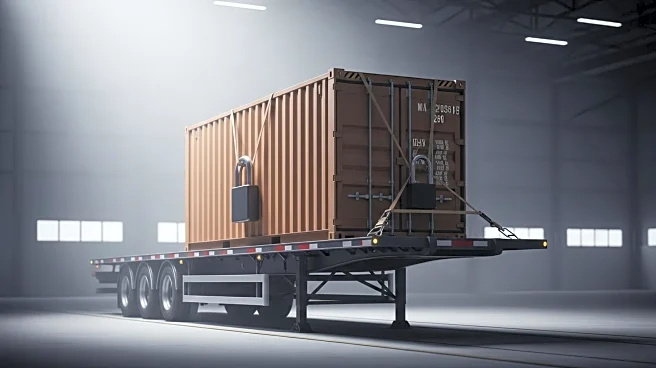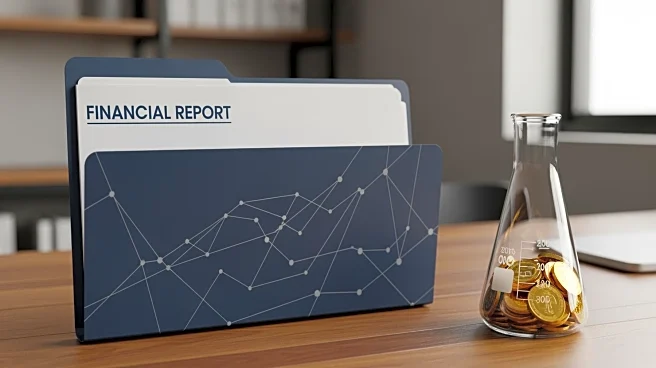What's Happening?
The Federal Motor Carrier Safety Administration (FMCSA) has introduced new regulations aimed at addressing the growing issue of cargo fraud, which is increasingly affecting the relationship between shippers and carriers. The rise in sophisticated fraud tactics, such as double-brokering and manipulated bills of lading, has led some shippers to bypass brokers and work directly with carriers to gain more control over the shipping process. Fraudsters are employing methods like using 'chameleon carriers'—entities that appear legitimate but have histories of illegal activities—to disguise thefts as legitimate transactions. These carriers often change their identities to avoid detection, making it challenging for shippers and law enforcement to identify them. Additionally, technology is playing a dual role, with AI-generated phone calls being used to scam brokers, while innovations in freight visibility and digitization of documents are helping to combat these fraudulent activities.
Why It's Important?
The implementation of FMCSA's new rules is significant as it aims to protect the logistics industry from the financial and operational impacts of cargo fraud. This issue not only affects the bottom line of businesses involved in shipping but also poses a risk to the integrity of supply chains. By modernizing registration systems and enhancing real-time freight visibility, the FMCSA is working to build a more reliable network of carriers and reduce the risk of fraud. This move is crucial for maintaining trust between shippers and carriers and ensuring the smooth operation of logistics services. The broader impact includes potential cost savings for businesses and increased security for high-value shipments, which are often targeted by fraudsters.
What's Next?
As the FMCSA continues to implement these new regulations, stakeholders in the logistics industry are expected to adapt by investing in technology that enhances visibility and compliance. Shippers and brokers may need to reassess their vetting processes and consider adopting digital solutions to better track shipments and verify carrier credentials. The ongoing evolution of fraud tactics will likely prompt further regulatory updates and technological advancements to stay ahead of criminal activities. Industry players will need to remain vigilant and proactive in their efforts to safeguard their operations against fraud.
Beyond the Headlines
The ethical implications of cargo fraud extend beyond financial losses, as they can undermine trust in the logistics industry and disrupt supply chains that are critical to the economy. The use of technology in both perpetrating and combating fraud highlights the need for continuous innovation and collaboration among industry stakeholders. As fraud tactics evolve, there is a growing need for comprehensive strategies that address both the technological and human elements of logistics security.









